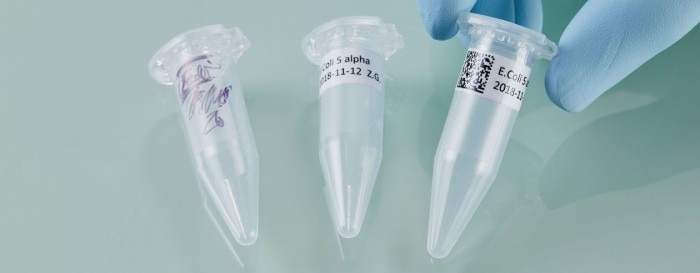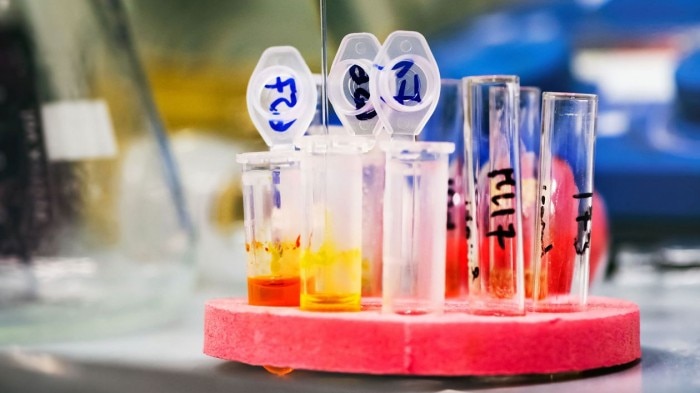MENU
IE | EUR
-
-
-
-
- Forum Labo 2025
- Advanced Therapies Week (ATW) 2025
- SLAS Europe 2025
- Bioprocessing Summit Europe 2025
- Medlab Middle East 2025
- SLAS International 2025
- Biologics World Nordics 2025
- ASIA LABEX: The Lab Show 2025
- BioProcess International Europe 2025
- ISEV 2025
- Future Labs Live 2025
- DataHow Symposium 2025
- Cell 2025
- LabDays 2025
- ASIA LABEX: The Lab Show 2025
-
-
-
-
- Forum Labo 2025
- Advanced Therapies Week (ATW) 2025
- SLAS Europe 2025
- Bioprocessing Summit Europe 2025
- Medlab Middle East 2025
- SLAS International 2025
- Biologics World Nordics 2025
- ASIA LABEX: The Lab Show 2025
- BioProcess International Europe 2025
- ISEV 2025
- Future Labs Live 2025
- DataHow Symposium 2025
- Cell 2025
- LabDays 2025
- ASIA LABEX: The Lab Show 2025
IE | EUR
-
- Benchtop Centrifuges
- Floor-Standing Centrifuges
- Refrigerated Centrifuges
- Microcentrifuges
- Multipurpose Centrifuges
- High-Speed Centrifuges
- Ultracentrifuges
- Concentrator
- IVD Products
- High-Speed and Ultracentrifuge Consumables
- Centrifuge Tubes
- Centrifuge Plates
- Device Management Software
- Sample and Information Management
-
- All Pipettes, Dispensers & Automated Liquid Handlers
- Mechanical Pipettes
- Electronic Pipettes
- Multi-Channel Pipettes
- Positive Displacement Pipettes & Dispensers
- Automated Pipetting
- Bottle-Top Dispensers
- Pipette Controllers
- Pipette Tips
- Automation Consumables
- Dispenser & Pipette Accessories
- Automation Accessories
- Dispenser & Pipette Services
Sorry, we couldn't find anything on our website containing your search term.

Lost in Samples: Tips for Effective Sample Management
Lab Academy
- Efficiency
- Digital Lab Solutions
- Storage
- Freezers & Accessories
- Essay
Remember the last time you were looking for a specific sample tube which was somewhere in one of those big ULT freezers in the basement? After grubbing through endless lists and realizing that updating of storage lists might make sense, you froze your fingers while searching real-time in the freezer. You found a lot of samples you missed at other time points – but your sample of interest – gone. Well, this probably happened to all of us somewhere in the past. But there are ways to reduce the likelihood. The better the sample documentation is, the less you have to search.
Who owns this sample?
The very first condition is to properly label every sample. The minimum information is "name of sample", "owner", and "date". Depending on the size of the vessel, you might add further information e.g. "concentration", "volume" or "source". The labeling should be done with a black pen (maximum contrast) and proper handwriting for easy reading. Even better are printed stickers.
Any writing or sticker on the vessel should be secured with transparent sticky tape.
Remember, vessels which miss a proper label will end up in the autoclave.
Read more
Read less

How to document?
The ancient way is paper-based. Every freezer box has its own spreadsheet with up to 100 lines.
The pro’s are the ease-of-use, the location of the list at the freezer and the time-saving when adding a sample by pen. As a drawback, it is limited to very low numbers of samples due to growing lack of clarity, you have no backup of those mostly handwritten documents, and the readability depends on the author.
A widely used digital way is Microsoft® Excel® based. You can use different tabs, search function, color codes, and save the file at different locations as backup.
Another step towards a fully functionable data base are software packages as Microsoft Access® or self-written data bases for sample management.
At the end of this journey, there are professional sample management data bases. These solutions are based on secured databases, access codes, audit trails, search functions, graphical interfaces, etc.
You can add additional information as MSDS or DNA sequence files to the digital sample. Sources of samples can be documented incl. the extraction methods/ protocols used.
Barcoded vessels can be scanned and the barcode is automatically transferred into the database. Barcode stickers can also be created, coding all necessary sample information.
Sample management can be easy…
Read more
Read less
Keep in mind
One risk remains: Despite all efforts about documentation and improving data safety, you still need to be careful when storing the vessel. You need to choose the correct freezer, the correct rack within the correct freezer compartment, the correct freezer box within the rack, and the correct spot within the freezer box. The same for removing a vessel. This human interaction is still a risk factor in the process and needs careful behavior.
Be aware: In addition to personal interest in organized sample management, genetically modified organism samples need to be documented in a careful way in many countries.
Microsoft® , Excel® and Access® are registered trademarks of Microsoft Corp., USA.
Read more
Read less
Related links
Read more
Read less
